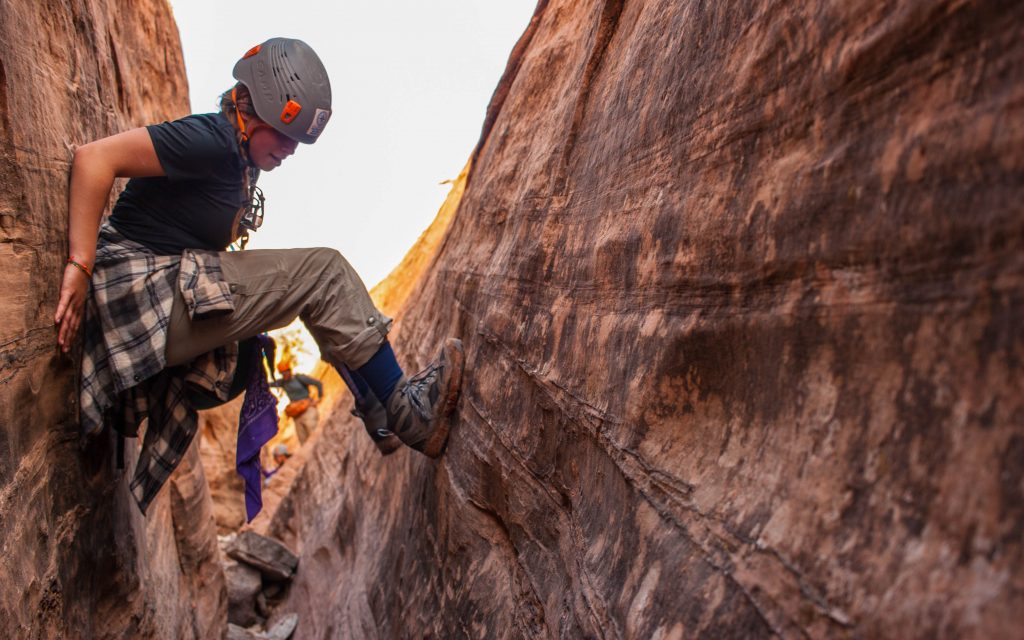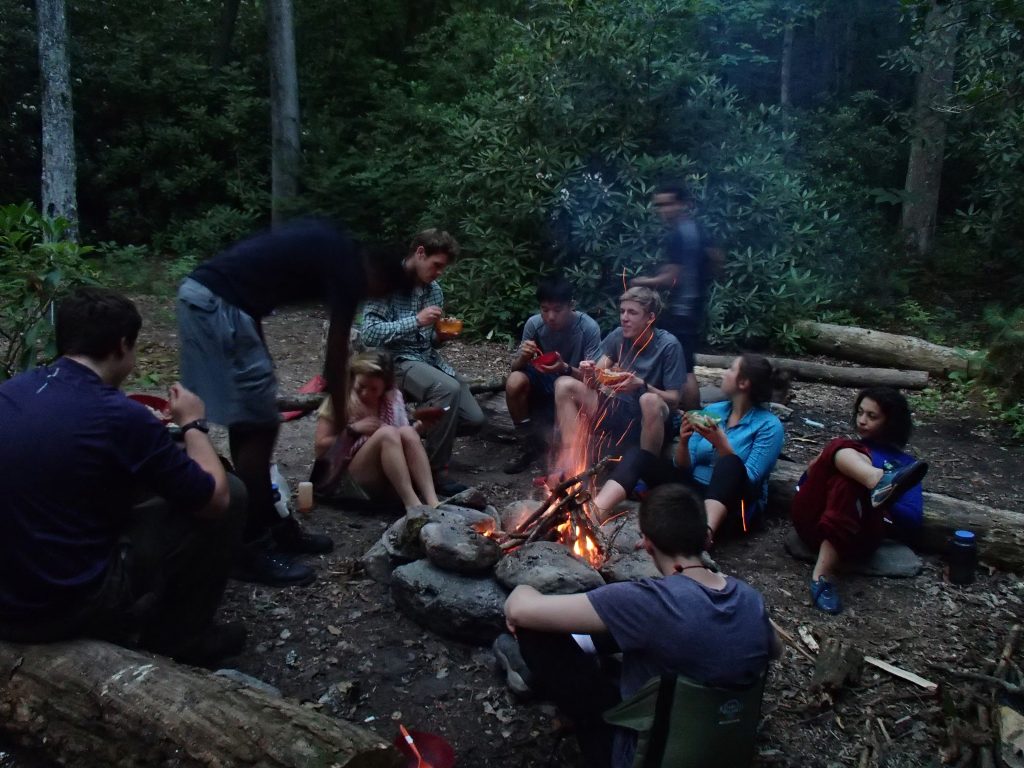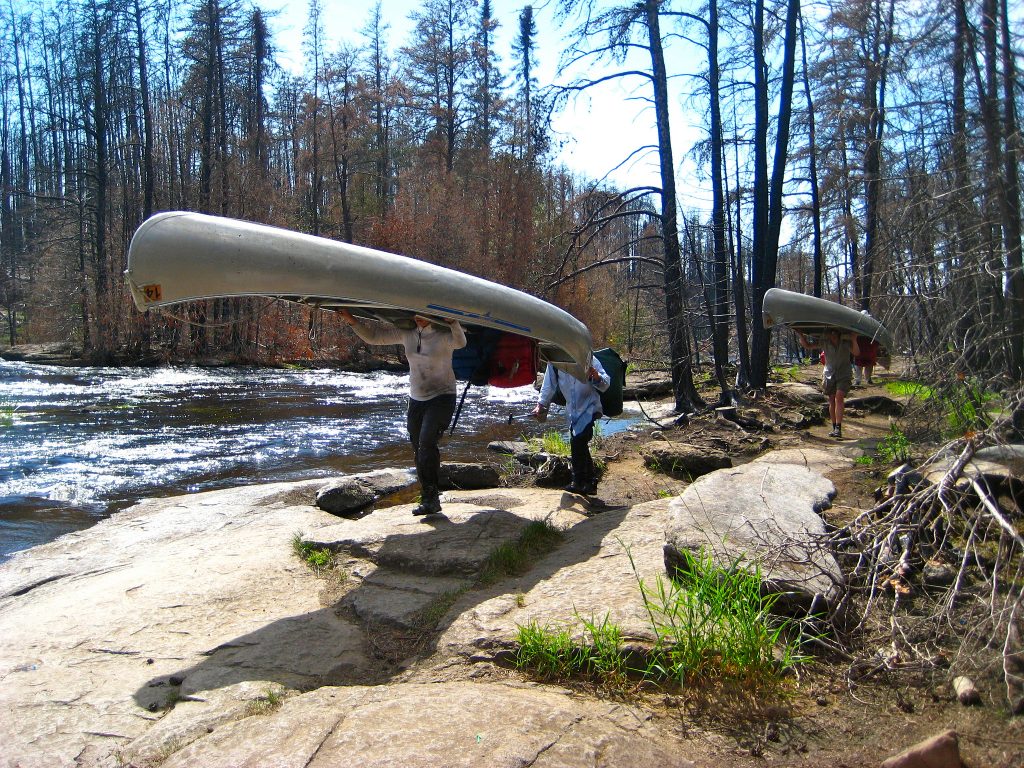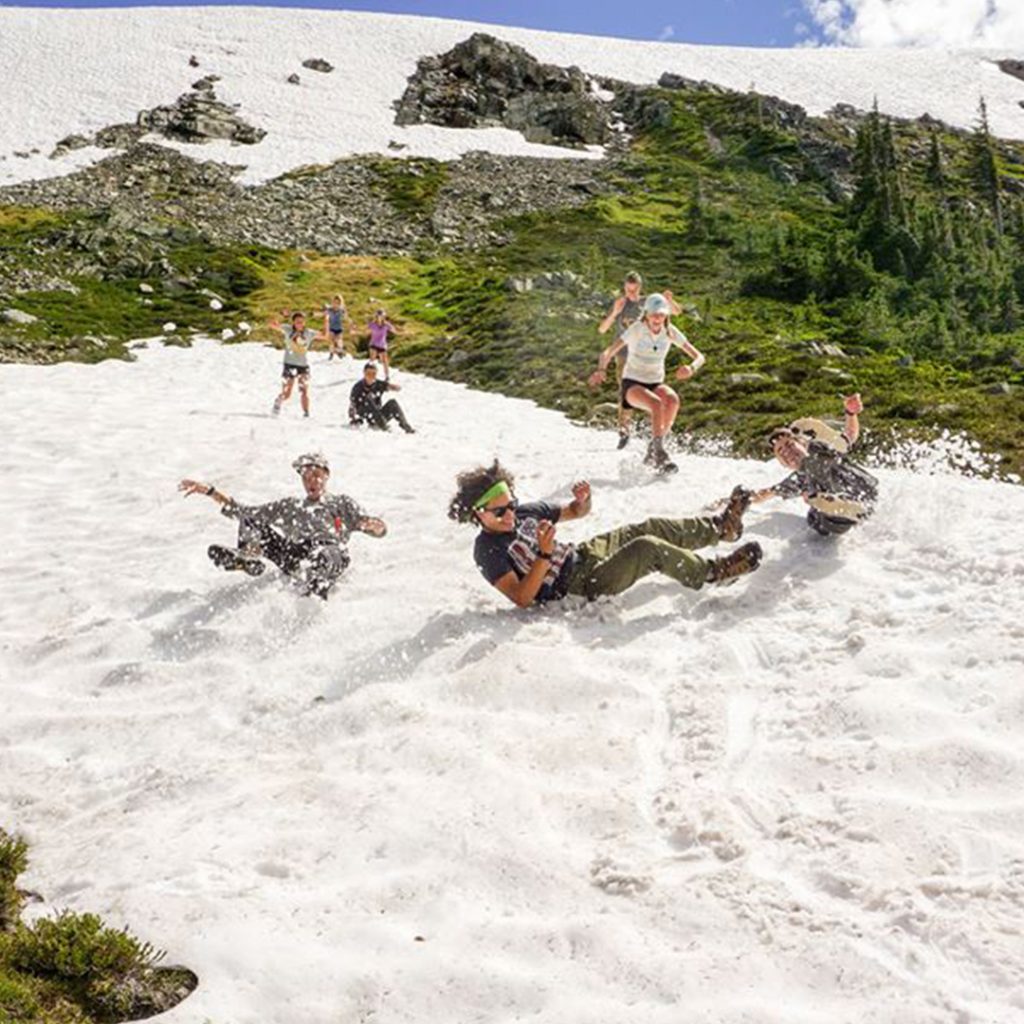The first day of any expedition is nerve-wracking, thinking about the future days together with your crew—the miles not yet traveled and skills waiting to be mastered. You’re apt to see everyone’s true selves, which will be a mixture of awe-inspiring strength and very human flaws. It’s a vulnerable position to be in, looking each other in the eyes on that first day and knowing you’re all about to witness some of each other’s greatest accomplishments and a few difficult challenges. This is something that happens on every course, whether it’s four or 85 days long.
A one-week course can seem, on paper, similar to its longer cousins. However, I’ve found consensus among the Instructors I’ve worked with that long courses offer greater educational outcomes for our students and a bigger sense of accomplishment. There’s a few reasons why, if you find yourself weighing your options between a short course and a longer one, and you have the option to, take the longer course.

Photo shows a student learning cayoneering skills on a Pathfinder Southwest Rafting & Canyon Backpacking expedition, courtesy of Steve Creech.
The first reason is simply comfort. We all come together on the first day reeling from the transition out of our other lives. It takes time for us to feel comfortable with each other, to open up, to laugh in ways that aren’t nervous or polite. It takes time to settle into routines of waking up with the sun, moving our bodies all day and not having access to our phones. While each group is different, and sharing a tent certainly accelerates the getting-to-know-you process, this is a step that can’t be skipped or shortened much. During this phase, our brains are focused on establishing our place within the group and learning where to store things in our packs. Deep interpersonal connection, major physical accomplishment or intense reflection and contemplation are unlikely to happen in this phase. This is not a shortcoming, but a necessary step in group development and our personal comfort in being in a new situation. Just as if I were to walk into a room full of people in an unfamiliar place and someone started immediately talking to me, it would be difficult for me to focus for a moment as I took in my surroundings.

Students sit down to a meal after a day of backpacking.
On a longer course, students have more time for skill mastery. After the first day of canoeing or backpacking, many students come to the realization that this mode of travel is not as simple as they assumed. It requires muscles they didn’t know they had, and there are techniques they learn to make travel easier. So too with fire building, map reading and keeping one’s stuff dry when it rains. On their first attempts they may succeed, but their many subsequent attempts will become more efficient and easier. Students have more time to practice, and so they become better wilderness travelers. They have time to see their own progress, from barely being able to lift a canoe to carry it to the next lake, to having the confidence to carry it solo for a half-mile. Though it may seem hard to believe, the days fill up quickly. A longer course allows the expedition to take a breath and push forward to an even larger goal.

Students portage their canoes on a course in the Boundary Waters wilderness in Minnesota. Photo by Asa Fields.
As students take time to settle into the wilderness and master the skills needed to thrive on expedition, another element comes in: fun. Both youth and adults, when faced with new people, new surroundings and hard work, need fun. We schedule in time for fun, whether that’s blueberry picking, sharing stories around the fire or tossing a football in the water. Just as a longer course has more time for skill mastery than a shorter one, it also has more time for fun. Whether it’s the chance of seeing a bear or a meteor shower, the magic of the wilderness can’t be scheduled, and a longer course makes it more likely to cross our paths.

The final, and to me, most important reason a long expedition is my favorite to instruct, is that it allows the most time for personal growth and to learn from group dynamics. It might show up in the form of a lengthy Solo experience or a blooming friendship. An extra week makes space for us to settle into the moments that lead to growth—to accomplish challenging things and have difficult conversations, with ourselves and each other. It also gives us time to reflect on these experiences before they’re over and back home with it all feeling like a rapidly-fading dream. We encourage students to set goals to change the course of their life back home. We encourage them to build habits to strengthen their relationships and communities. We encourage them to reflect on what they’re grateful for and what’s missing from their lives. While elements of self-discovery, challenge and adventure are present in every Outward Bound course, more time on a course leads to stronger outcomes. That’s why I’d encourage anyone looking to get the most out of their experience consider a long expedition.
About the Author
Renee Igo was an Outward Bound student at age 15, and has been instructing wilderness expeditions for the Voyageur Outward Bound School for the past eight years. When not instructing, she holds a variety of other teaching positions and raises sheep in Maine.
OTHER POSTS YOU MAY LIKE
Read More
Read More
Read More




